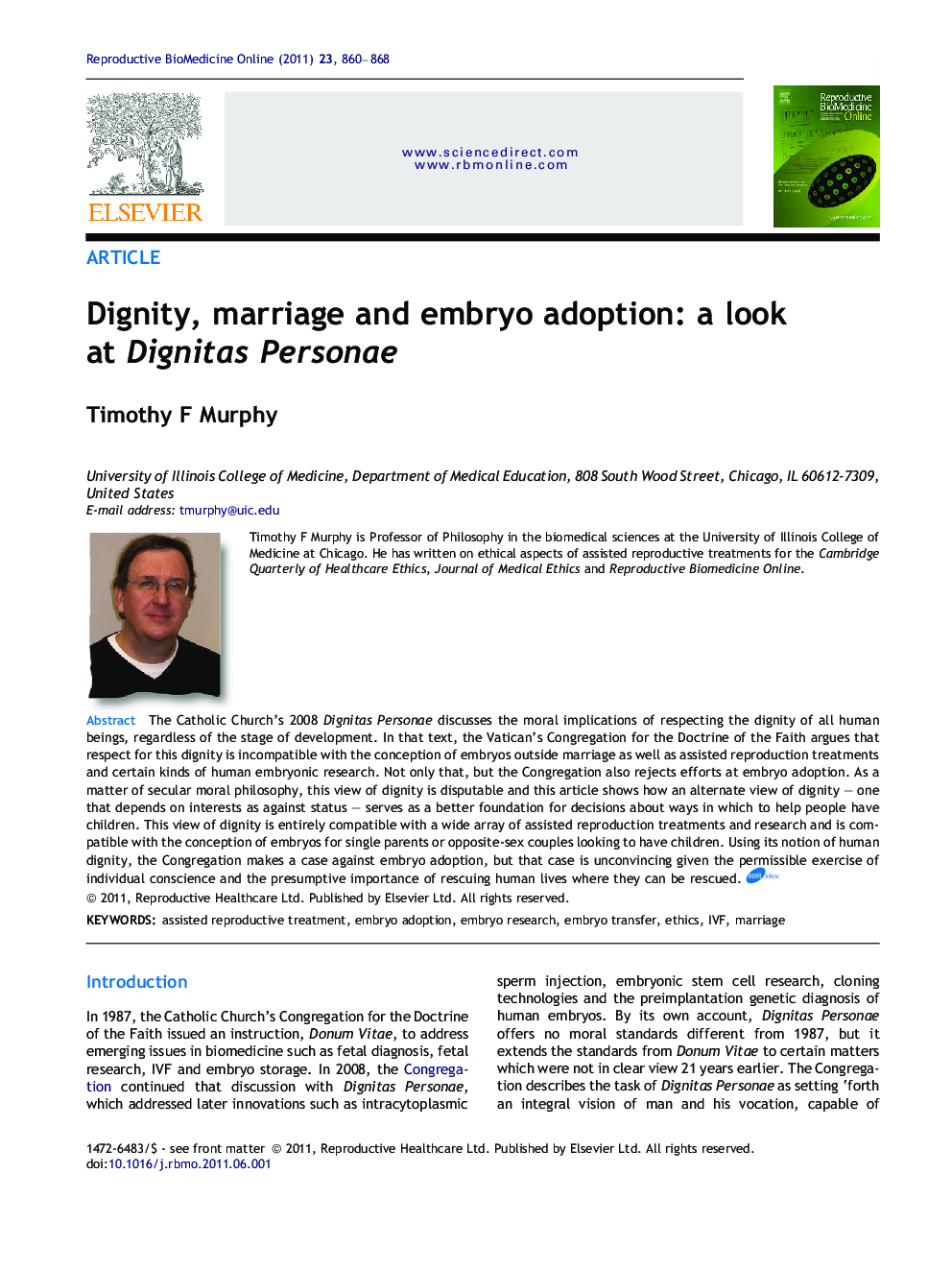| کد مقاله | کد نشریه | سال انتشار | مقاله انگلیسی | نسخه تمام متن |
|---|---|---|---|---|
| 3971160 | 1256751 | 2011 | 9 صفحه PDF | دانلود رایگان |

The Catholic Church’s 2008 Dignitas Personae discusses the moral implications of respecting the dignity of all human beings, regardless of the stage of development. In that text, the Vatican’s Congregation for the Doctrine of the Faith argues that respect for this dignity is incompatible with the conception of embryos outside marriage as well as assisted reproduction treatments and certain kinds of human embryonic research. Not only that, but the Congregation also rejects efforts at embryo adoption. As a matter of secular moral philosophy, this view of dignity is disputable and this article shows how an alternate view of dignity – one that depends on interests as against status – serves as a better foundation for decisions about ways in which to help people have children. This view of dignity is entirely compatible with a wide array of assisted reproduction treatments and research and is compatible with the conception of embryos for single parents or opposite-sex couples looking to have children. Using its notion of human dignity, the Congregation makes a case against embryo adoption, but that case is unconvincing given the permissible exercise of individual conscience and the presumptive importance of rescuing human lives where they can be rescued.The Catholic Church has issued several texts that describe the conditions under which it is moral for human beings to have children. Those conditions do not ordinarily include the use of assisted reproductive treatments. The 2008 document Dignitas Personae maintains that conceiving embryos outside of marriage and with assisted reproductive treatment violates the dignity of the children involved. That document also restates objections to research uses of human embryos because this church interprets embryos as persons from the moment of conception. I show that these interpretions are open to question. In particular the view of human dignity involved in this position is not well founded. I offer an alternate view of dignity, one that depends on interests as against status. This view of dignity is entirely compatible with a wide array of assisted reproductive treatments and research and is compatible with helping single parents or opposite-sex couples have children by means other than marital intercourse. Using its notion of human dignity, the Congregation makes a case against embryo adoption, but that case is unconvincing given the permissible exercise of individual conscience and the presumptive importance of rescuing human lives where they can be rescued.
Journal: Reproductive BioMedicine Online - Volume 23, Issue 7, December 2011, Pages 860–868